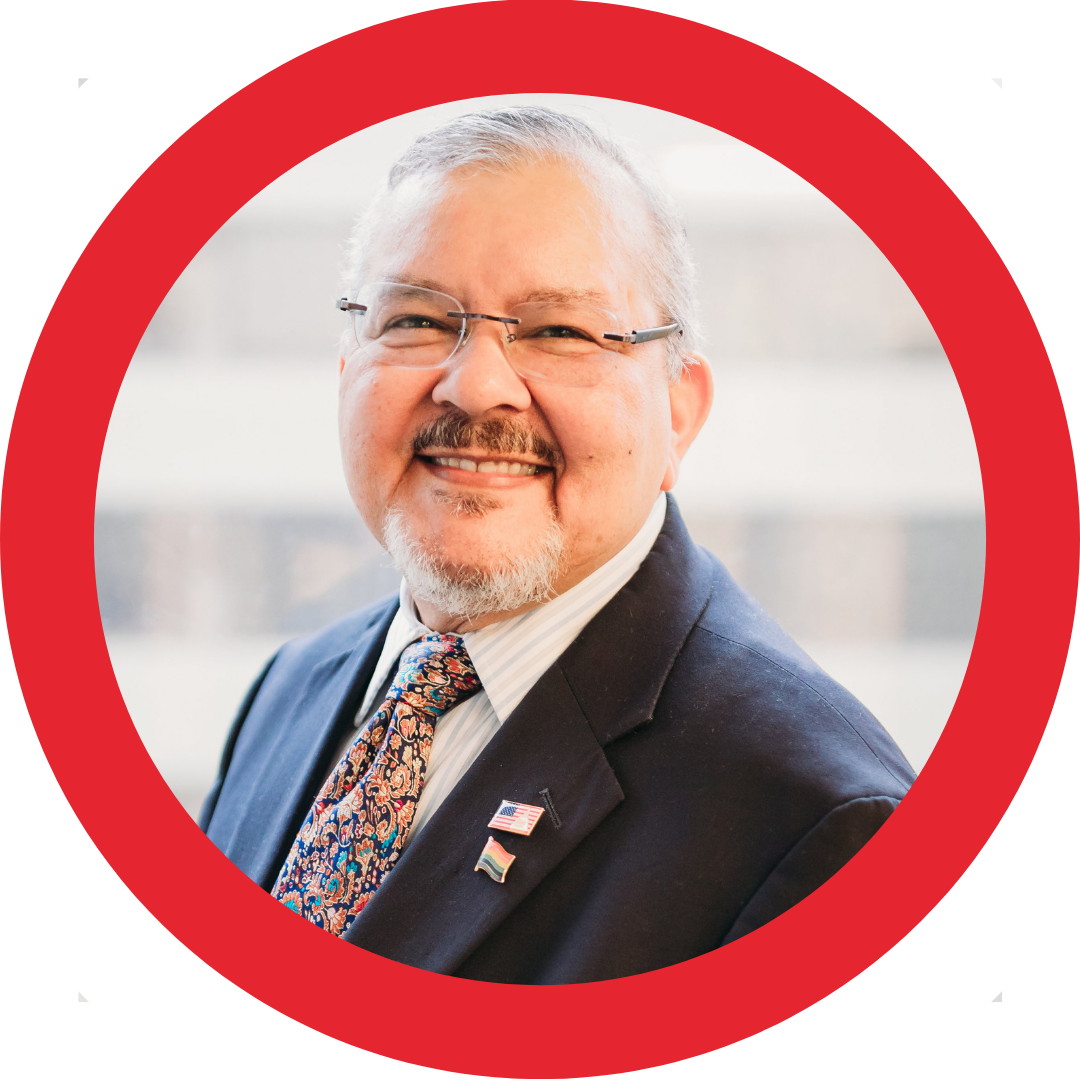 | | | Tell your Senators TODAY to vote YES on the Respect for Marriage Act. The House passed the Respect for Marriage Act on July 19th on a bipartisan basis and now it’s up to the Senate to act. The Respect for Marriage Act will repeal DOMA and codify into law the right to same-sex and interracial marriage, rights which could become under threat following the Supreme Court’s reversal of Roe v. Wade. No matter WHO your Senators are, don’t let them have to wonder what you need them to do: Vote YES on RMA. It is critical that the Senate follow the House’s lead. Tell your Senators TODAY to protect our rights and vote YES on the Respect for Marriage Act. And while you’re on the phone, tell your Senators to pass the LGBTQI+ Data Inclusion Act and to defend reproductive rights. The LGBTQI+ Data Inclusion Act requires federal agencies that use surveys to collect voluntary, self-disclosed information including sexual orientation and gender identity. This is crucial to properly determine the LGBTQ+ community’s needs and how the Federal government could address those needs. And with the Dobbs decision, the Supreme Court overturned five decades of settled precedent and took away the constitutional federal right to an abortion. The Senate must protect reproductive rights by passing legislation like the Women's Health Protection Act, and the EACH Act. Inaction is not an option. Call your Senators and tell them to address these bills before Summer Recess! Get in voting season shape: Register for the upcoming PFLAG Academy Online today. Join the webinar, PFLAG Votes 2022: Midterms Matter, to review what PFLAG members should do to ensure that they are able to cast a ballot in November 2022, discuss how PFLAG chapters can help to register more voters while staying within the guidelines set forth by the IRS for 501(c)(3) nonprofit organizations, reaffirm PFLAG’s legislative priorities, and examine what is truly at stake for our LGBTQ+ loved ones. The webinar will take place on July 28, 2022 at 5:30pm PT / 8:30pm EST. | |  | | | | |  | | | | |  | | | In the last year, we’ve seen a marked rise in anti-LGBTQ+ action in state and local governments. Many states are introducing legislation targeting trans youth, and local schools and libraries are being pressured into censoring LGBTQ+ history and stories. Visit pflag.org/protecttranskids to take action against anti-trans bills in your state today. Want to take action and not sure where to start? Please contact Patrick Cochran, Advocacy and Policy Engagement Senior Coordinator. Most Texas and Florida voters believe transgender youth should be able to access gender-affirming healthcare. A recent report by the Trevor Project shows that 45 percent of Texas voters and 54 percent of Florida voters believe that gender-affirming care should be available to minors if recommended by their doctors and supported by their parents. Most Texas voters do not think pediatricians and parents should be charged with child abuse for providing gender-affirming care. Some states seek to codify same-sex marriage in wake of Roe v. Wade decision. Many state lawmakers are proposing legislation intended to codify same-sex marriage in response to the Supreme Court’s decision reversing Roe v. Wade. While marriage remains the law of the land, this would protect same-sex marriage in the event that the Supreme Court overturns Obergefell v. Hodges in the future. According to the ACLU, 2022 record year for anti-LGBTQ+ state bills. In 2022 alone, state legislators have introduced 162 anti-LGBTQ+ bills across the U.S. There were 151 bills introduced in total in 2021 and only 76 in 2020. The majority of the bills introduced this year target transgender youth, including non-binary youth. Alabama - Attorney General’s office hires lawyers to defend transgender healthcare ban. The Attorney General’s office hired outside lawyers to help appeal an injunction on the Alabama Vulnerable Child Compassion and Protection Act, which is a ban on gender-affirming care for minors. California - Restrictions placed on state-funded travel to states with anti-transgender laws. Attorney General Rob Bonta is restricting state-funded travel to Indiana, Arizona, Louisiana, and Utah in response to anti-LGBTQ+ laws. Adding these four states brings the total number of restricted travel states to 20. Lawmakers aim to remove Proposition 8 from state constitution to protect marriage rights. Proposition 8 states that “only marriage between a man and a woman is valid or recognized in California.” It was ruled unconstitutional by a district court in 2010 but has remained in the state constitution. Lawmakers now want to remove it from the state’s constitution to protect same-sex marriage in wake of the Supreme Court’s Dobbs decision overturning Roe v. Wade. Florida - State supports Medicaid ban on gender-affirming healthcare. The state Agency for Healthcare Administration proposed rules that Florida Medicaid will not cover puberty blockers, hormones and hormone antagonists, gender-affirming medical procedures, and “any other procedures that alter primary or secondary sex characteristics.” The DeSantis administration has come out in favor of the proposed ban. Stay tuned to PFLAG media channels to continue to be engaged in this fight for equality with PFLAG and partner Equality Florida. Pennsylvania - Governor Wolf vetoes anti-transgender athlete ban and poll watcher bill. Governor Wolf had previously stated that he would veto the bill to prohibit transgender athletes from participating on sports teams matching their gender identity due to its potential impact on “a vulnerable population already at greater risk of bullying and depression.” The second bill would have allowed all registered voters in the state to act as poll watchers in any precinct. Wolf stated that this would encourage voter intimidation and negatively impact polling access. | |  | | | U.N. adopts four resolutions against LGBTQ+ discrimination and violence. The Human Rights Council urged member states to repeal discriminatory laws and renewed the Independent Experts on Sexual Orientation and Gender Identity, a powerful resolution protecting the LGBTQ+ community. 2022 marks the first year that the Human Rights Council has explicitly condemned anti-LGBTQ+ legislation and discriminatory statutes. Antigua and Barbuda - High Court strikes down anti-LGBTQ+ law. Justice Marissa Robertson ruled two laws criminalizing sexual relations between men as unconstitutional and violations of Antigua and Barbuda’s guarantee of liberty and freedom of discrimination. LGBTQ+ activists flagged a need for further protections in housing, employment, and public accommodations. Iraq - Government drafts plan to criminalize homosexuality. The Iraqi Parliament recently drafted legislative proposals to prevent and prohibit homosexuality in the country. Iraqi LGBTQ+ organizations condemned the government’s actions as blatantly discriminatory. Hungary - European Court of Justice looking into anti-LGBTQ+ law. The European Commission extended its history of legal confrontations with the Hungarian government by investigating a discriminatory law targeting LGBTQ+ people. Human rights groups and international watchdogs alike criticized Hungarian Prime Minister Viktor Orban’s targeted attacks against the LGBTQ+ community. Lebanon - Government crackdown puts LGBTQ+ people at risk. Members of the LGBTQ+ Lebanese community fear for their safety after the Lebanese Interior Ministry’s increased enforcement of anti-LGBTQ+ legislation. The infringement of LGBTQ+ rights occurs in the wake of the country’s financial and economic crisis. Russia - Government expands anti-LGBTQ+ “propaganda” law. The law restricts the dissemination of LGBTQ+ affirming information and applies to children and adults alike. It will also prohibit LGBTQ+ media representation. Activists warn that the bill will only fuel further discrimination against and potential harm to the LGBTQ+ community. Slovenia - Constitutional court rules anti-LGBTQ+ law unconstitutional. Under the new ruling, same-sex couples can now marry and adopt children. Although Slovenian voters previously rejected a non-discriminatory marriage bill in 2015, the country becomes the first former Yugoslav republic to legalize same-sex marriage following this ruling. South Korea - First pride parade in three years attracts thousands to Seoul. Celebrators and counter-protesters gathered at the parade under heavy police supervision. Although South Korean public sentiment towards the LGBTQ+ community has improved over time, queer and trans individuals still face stigma and religious reproach. Thailand - Two proposals for legal recognition of same-sex unions pass parliament. If Thailand recognizes same-sex marriages, it will become the first Southeast Asian nation to do so. Ukraine - President Zelensky to consider legalizing same-sex marriage after 28,000-signature petition. The outcome of the petition, however, remains unclear in light of the Ukrainian President’s ambiguous position toward the LGBTQ+ community. Homosexuality in Ukraine has been legalized since 1991. United Kingdom - Boris Johnson steps down as prime minister. Johnson appointed a new, interim Cabinet to serve until his replacement is elected. LGBTQ+ activist groups have criticized Johnson’s government for its discriminatory and controversial stances toward trans rights. | |  | | | | | | | | | The PFLAG National Advocacy, Policy, and Partnerships Team is always here to support you with your work, so please don't ever hesitate to reach out to us for assistance. Yours in PFLAG power, | | | |  | Diego M. Sanchez, APR
Director of Advocacy, Policy & Partnerships
Pronouns: He, Him, His
Email: [email protected] | | |  | Patrick Cochran
Advocacy and Policy Engagement Senior Coordinator
Pronouns: He, Him, His
Email: [email protected] | | | | | | | |